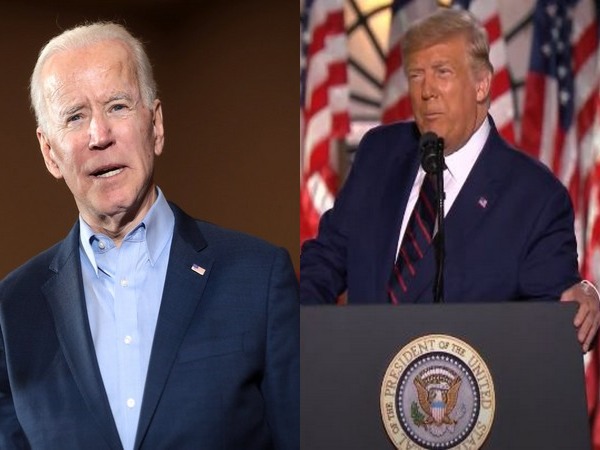US News Roundup: Trump and Biden take sharply different paths on immigration; Senate to vote on Republican coronavirus aid bill opposed by Democrats and more
Citing new book, Biden accuses Trump of betraying Americans on coronavirus Democratic presidential nominee Joe Biden accused President Donald Trump on Wednesday of betraying the American people, saying he knowingly lied about the deadliness of the novel coronavirus in what amounted to a "dereliction" of duty.

- Country:
- United States
Following is a summary of current US domestic news briefs.
Trump and Biden take sharply different paths on immigration
U.S. President Donald Trump's push to crack down on illegal immigration and reshape legal immigration was at the heart of the Republican's winning 2016 campaign and has remained at the forefront of his White House agenda. Former Vice President Joe Biden, the likely Democratic challenger in this year's presidential election, promises to rescind many of the policies put in place by Trump's administration and instead advance his own platform if he wins on Nov. 3.
Exclusive: Russian state hackers suspected in targeting Biden campaign firm – sources
Microsoft Corp recently alerted one of Democratic presidential candidate Joe Biden's main election campaign advisory firms that it had been targeted by suspected Russian state-backed hackers, according to three people briefed on the matter. The hacking attempts targeted staff at Washington-based SKDKnickerbocker, a campaign strategy and communications firm working with Biden and other prominent Democrats, over the past two months, the sources said.
'Explosive' western U.S. wildfires threaten Oregon towns
Strong winds and high temperatures fed nearly 100 extreme wildfires across the U.S. West on Wednesday, severely damaging at least two small towns in Oregon where the governor declared an emergency for "unprecedented" blazes. Firefighters in California, Washington and Oregon retreated from uncontrolled fires that forced tens of thousands to evacuate their homes and hundreds of thousands to lose power in the three states.
Citing new book, Biden accuses Trump of betraying Americans on coronavirus
Democratic presidential nominee Joe Biden accused President Donald Trump on Wednesday of betraying the American people, saying he knowingly lied about the deadliness of the novel coronavirus in what amounted to a "dereliction" of duty. According to newly released recordings of interviews done in February for a book by journalist Bob Woodward, Trump acknowledged he knew how deadly and contagious the coronavirus was but played it down because he did not want to create a panic.
Senate to vote on Republican coronavirus aid bill opposed by Democrats
The U.S. Senate was set to vote on Thursday on a Republican bill providing around $300 billion in new coronavirus aid, far below the $3 trillion Democrats insist is needed to stimulate an ailing economy and help people struggling through the pandemic. In what could be the final vote on coronavirus relief in Congress before the Nov. 3 presidential and congressional elections, Republicans and Democrats appeared to be deadlocked over the next steps in responding to a virus that has killed more than 190,000 people in the United States and nearly 900,000 globally.
How California's wildfires could spark a financial crisis
Wildfires across the U.S. West are among the sparks from climate change that could ignite a U.S. financial crisis by damaging home values, state tourism and local government budgets, an advisory panel to a U.S. markets regulator found. Those effects could set off a cascade of events including defaults and market disruptions, undermining the U.S. economy and sparking a crisis.
Here's how: U.S. confirms it will end enhanced screening for some international passengers
The U.S. government confirmed on Thursday it will end enhanced screening of some international passengers for COVID-19 and drop requirements that travelers coming from the targeted countries arrive at 15 designated U.S. airports, starting Monday. Reuters reported the planned shift Wednesday. The Centers for Disease Control and Prevention (CDC) said in a statement it was removing the requirements because symptom-based screening has limited effectiveness because people with COVID-19 may have no symptoms or only mild symptoms.
A migrant mother saw her disabled son walk into the U.S. Then he disappeared
On Aug. 24, after waiting for five months in the violent Mexican border city of Ciudad Juarez for a U.S. asylum hearing, Elida, a Guatemalan migrant, decided to send her disabled 12-year-old son Gustavo into the United States alone. Elida feared for Gustavo's safety in Mexico, after a stranger tried to take him from her, she said. She had been told by other migrants that as an unaccompanied child Gustavo would be detained by U.S. immigration agents and then released to his grandfather who lives in South Carolina.
A Trump security chief acknowledges role of white supremacist extremists in U.S. urban violence
President Donald Trump's acting homeland security chief on Wednesday acknowledged that white supremacist extremists played a role in this year's urban violence in the United States, a revision of the administration's public descriptions of the political motivations of violent protesters. In what was billed as a "2020 State of the Homeland" speech, acting Homeland Security Secretary Chad Wolf initially attributed violence in Portland, Oregon in particular to "violent opportunists" and went on to describe how protesters had attacked federal officers with sledge-hammers, pipes, fireworks, homemade bombs and other weapons.
Portland votes for first-ever U.S. ban on corporate use of facial recognition
Portland on Wednesday voted in favor of the first-ever ban in the United States on private entities, such as restaurants and retail stores, from using facial recognition technology in public places in the city. Portland's city council also voted to ban local government bureaus from acquiring or using the controversial surveillance technology. Several U.S. cities, including San Francisco and Oakland, have previously banned government use of facial recognition.
(With inputs from agencies.)










